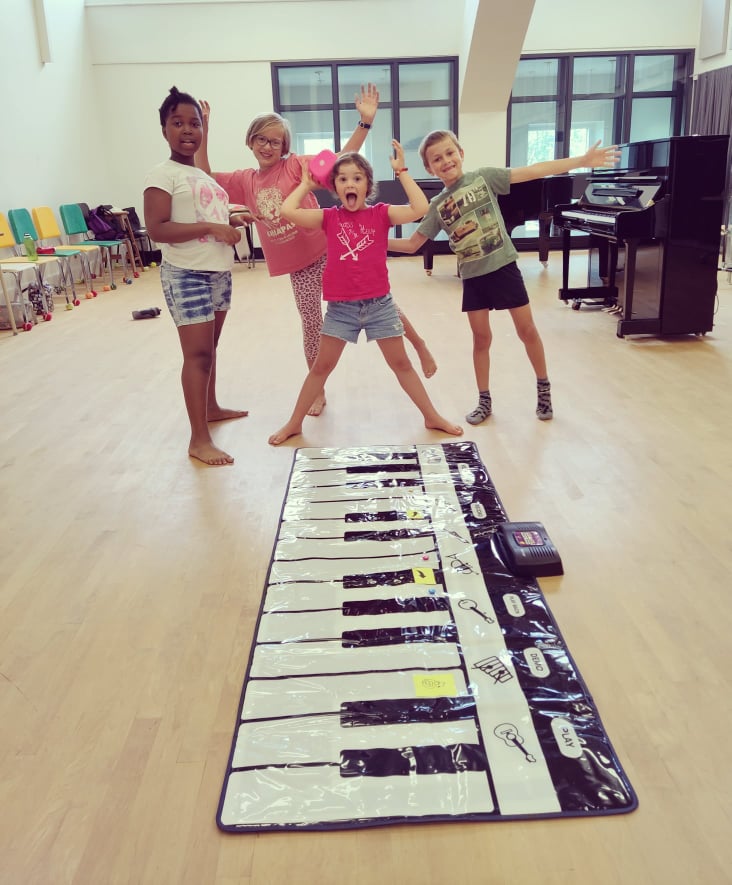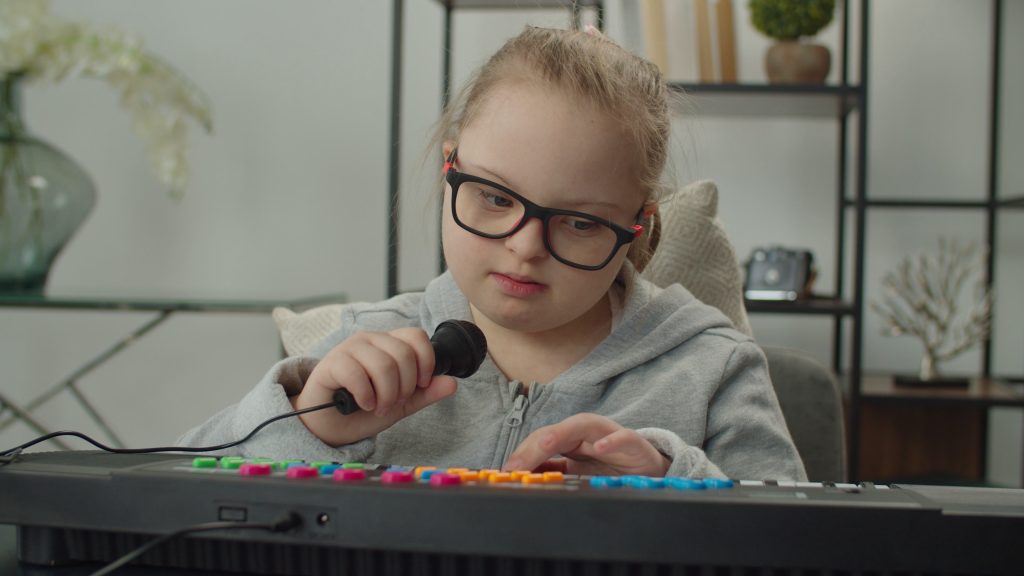Rumor Detector
Separate fact from myth on topics in music pedagogy frequently debated among the general public.
True or false?
The idea that music learning must be strict and serious to be effective is still widely believed. But do we really have to eliminate fun to make progress? Research says no! Having fun while playing music does not prevent learning—quite the opposite! A playful approach enhances engagement, creativity, and the acquisition of musical skills.
Play as a Driver for Musical Learning

What if experimentation and autonomy were just as essential as discipline? Learning an instrument is not just about following strict rules—exploration, trial and error, and self-correction are also key parts of the process. This is exactly what music video games and serious games, such as Rocksmith, demonstrate, as they strengthen instrumental learning by fostering a more spontaneous and interactive practice (Havre et al., 2019).
Even for older students, play proves its value! In secondary education, keeping students engaged can be a challenge, but playful learning strategies make music classes more dynamic and engaging. For example, the Playback Orchestra method has shown that integrating interactive audio support helps students grasp musical concepts more quickly and improves their communication skills (Juntunen, 2018).
The University of Youth Music Play(ers): Proof in Action
And this isn’t just theory! At the University of Youth Music Play(ers): (UJM), this principle is confirmed every day: integrating play into music learning boosts students’ engagement, stimulates their creativity, and enhances their well-being during lessons (Dubé et al., 2024, 2025). Regardless of their musical background or cultural origins, young musicians progress with joy, proving that play and learning can go hand in hand.
Balancing Fun and Discipline
But let’s be clear—music learning is not just a game! While play makes learning more intuitive, it does not replace a structured and progressive approach. Some complex skills, such as mastering instrumental technique, require in-depth practice that gamification alone cannot fully compensate for (Molero et al., 2020).
This is where the key lies: finding the right balance between play and discipline. By combining playful exploration with structured pedagogy, we keep students engaged while ensuring high-quality and lasting learning outcomes.
Why oppose seriousness and fun when both can work together?
Have you experienced a playful approach to music learning? Share your experiences in the FAQ section!
📚Further Readings
🔹 University of Youth Music Play(ers) (UJM) – Learning Musical Instruments Through Educational Games
🔹 Havre et al. (2019) – Video Games and Music Teacher Training
🔹 Molero et al., 2020 – Music and Piano Learning Based on Mixed Reality and Gamification
Additional References:
Conference Presentation: Dubé, F., Marin, A., Fournier, G., Bissonnette, J., & Seboka, S. (2024). Tuning creativity and well-being: The influence of playful learning pedagogy on young musicians. [Conference presentation]. Instrumental & Vocal Music Teaching Commission, International Society for Music Education (ISME), Espoo, Finland.
Book Chapter (Upcoming Publication): Dubé, F., Marin Jimenez, A. P., Fournier, G., Seboka, S., & Bissonnette, J. (2025, in press). Let’s rock! Instrumental pedagogy with digital and tabletop games and playful music learning activities. In K. Veblen, F. Dubé, J.-P. Després, & S. Messenger (Eds.), Learning music through play. Routledge.
Journal Article: Juntunen, M.-L. (2018). Using socio-digital technology to enhance participation and creative engagement in a lower secondary music classroom. Nordic Research in Music Education Yearbook, 18, 47–74. http://hdl.handle.net/11250/2490537
A commonly held belief yet contradicted by numerous studies and initiatives. Although this assumption persists, research and educational experiences demonstrate that with appropriate support, musical learning is not only possible but also highly beneficial for individuals with intellectual disabilities.
Tailored Educational Approaches to Support Learning

For some individuals with intellectual disabilities, learning music can be a challenge. However, initiatives such as Tétras Lyre in France, the Lotus Centre in Ottawa, and the Lab musical extra-ordinaire at Laval University’s Faculty of Music illustrate that adapted teaching methods enable students to progress. These institutions focus on musical awareness and customized pedagogies, even allowing students to join inclusive orchestras (Kéroul, 2021).
Music Therapy as a Tool for Musical and Personal Development
Music therapy uses music to stimulate motor, cognitive, social, and emotional skills while promoting engagement, autonomy, and quality of life (Mino-Roy et al., 2022). Although effects vary depending on individuals and contexts, it provides significant benefits to people with intellectual disabilities.
A Positive Impact Within a Structured Framework
Beyond being a form of personal and artistic expression, music plays a crucial role in the development of individuals with intellectual disabilities (Després et al., 2024). With pedagogical and therapeutic approaches adapted to their needs, they can not only learn to make music but also experience meaningful personal and social benefits.
Far from being inaccessible, musical learning can become a source of fulfillment and inclusion for individuals with intellectual disabilities.
Have you encountered inspiring experiences in this field? Share them with us in the FAQ section!
📚 Further Reading:
🔹 Kéroul (2021) – Guide on Music Accessibility
🔹 Mino‐Roy et al. (2022) –Effects of Music Therapy on Individuals with Intellectual Disabilities
🔹 Després et al. (2024) – Scientific Review on Music and Youth with Intellectual Disabilities